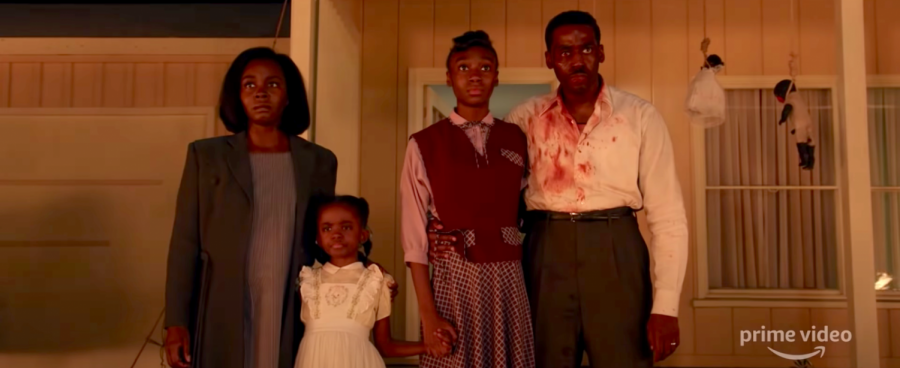“Them” is a relentlessly raw and horrific masterpiece that was released on Amazon Prime Video earlier this month, on April 9. From its examination of racism, redlining and violence against black bodies, the story takes the term “eye-opener” to a whole new level.
Although “Them” is a fictional narrative, its story is centered around real suffering. Many critics have stated that some scenes were too gruesome because they sensationalize Black trauma, but I believe that this portrayal of Black pain allows people who have been in these types of situations to be heard and recognized. These things have happened to people in the past and if it takes these types of explicit scenes to convey to viewers that equality should be a given, then so be it.
The new Amazon Prime horror series follows a Black couple, Henry Emory (Ashley Thomas) and Lucky Emory (Deborah Ayorinde), who, in the wake of a devastating tragedy, decide to move along with their two daughters, Ruby Emory (Shahadi Wright Joseph) and Gracie Emory (Melody Hurd) from North Carolina to an all-white neighborhood in Compton, California, in hopes of a new beginning. The narrative takes place in the 1950s during the Great Migration, a time in which many black families were moving out of the rural south to the urban north and west in order to escape racism, Jim Crow laws and to seek better opportunities.
Unfortunately for the Emorys, they are greeted with nothing but bald-faced hatred, bullying and violence from their neighbors, namely Betty Wendell. Played by Alison Pill, Wendell is the average 1950’s housewife who stands by “keeping Compton White.” Meanwhile, each member of the family is dealing with their own trauma that is largely due to being Black in this particularly unjust time period. Eventually, this enables something malevolent to enter the picture.
As someone who enjoys learning about Black history and watching films on the subject, this series captivated me not only because of its use of horror, but also its unique portrayal of Black struggle. “Them” is triggering and extremely uncomfortable to watch, which is to say that its message was impressively received. What unfolds as the narrative progresses is gruesome, saddening and cruel, but it speaks to the hardships that African Americans have had to endure for all of their lives.
Little Marvin, the show’s creator, says that this series is an “exploration of terror” and “the American Dream,” a reality which sadly is not offered to everyone who lives in this nation. The effects of white supremacy, redlining and racially restrictive covenants have carried over into the 21st century, resulting in a lack of intergenerational wealth within Black families that continues to affect Black people today.
Aside from the explicit racism that is shown, there is an evil presence that leeches itself onto the Emory family because of the collective insecurity in their racial identity. Their trauma is rooted in white people constantly telling them and other people of color that they are walking sins who should be condemned in this life and after. Their internalized racism, shared by many people of color in general, is an issue that is not often discussed in Hollywood. In response, Little Marvin takes this issue and throws it in the face of the viewers, and that in itself makes “Them” worthy of praise.








